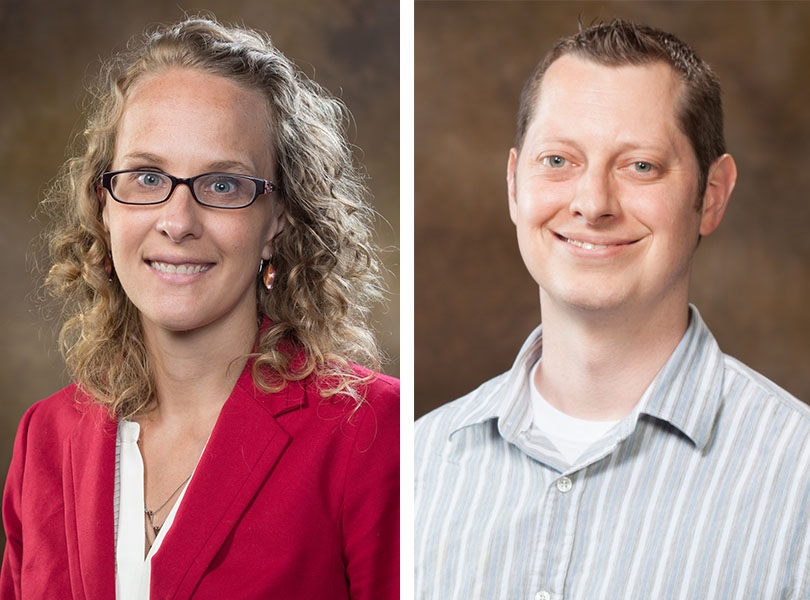
FAYETTEVILLE, Ark. – Two researchers — Sarah DuRant and Jeffrey Lewis — from the Department of Biological Sciences in the J. William Fulbright College of Arts and Sciences recently received Faculty Early Career Development Awards from the National Science Foundation.
DuRant, an assistant professor, received $1.5 million, while Lewis, also an assistant professor, received $1.2 million.
Known as CAREER awards, they are the NSF's most prestigious award for early-career faculty who have the potential to serve as academic role models in research and education and to lead advances in the mission of their department or organization. The awards are for five years and include teaching and public-outreach components.
Working with domestic canaries, DuRant plans to study the effects of disease on avian parental care behaviors and subsequent offspring responses to disease, including likelihood of disease transmission.
"In the world of the disease, a lot of focus is on how mothers, when they are exposed to a pathogen, develop antibodies to the pathogen and can pass them along to the offspring," she said. "One of the things I am interested in how behavior is shaping the immune phenotype of the offspring."
A pathogen can affect reproductive traits in parents such as incubation behaviors, DuRant explained, which in turn shape how an offspring responds to pathogens. "Ultimately what can happen is that how any individual responds to the pathogen can start to shape pathogen growth, transmission and virulence."
Lewis is studying how organisms with different genetic makeups respond differently to environmental stress. Using brewer's yeast, he will try to unlock the reasons why some strains are more sensitive to high levels of stresses such as ethanol than others.
"In pretty much every organism, if you expose them to mild stress there are a bunch of stress-protective proteins that get turned on," he said. "The thought has long been that this response is for adapting to that initial stress. But the genes getting turned on by stress seemed largely dispensable for stress survival. The big question was why is the cell turning these genes on if they are not required to protect cell from insult that provoked the response?"
It turns out that the function of the proteins is, in part, to protect the cell against future severe stress, "analogous to vaccinating the cell," he said.
Yeast cells are easy to grow and manipulate with genetic engineering, he added, making them a good test subject for identifying the genes necessary for acquiring resistance to severe stress. "We can grow billions of them really easily and do high-throughput genetics really easily."
A side benefit is that the research could lead to improved yeast strains for brewing beer. "Some strains do better withstanding brewing stresses than others. We will have students analyze and incorporate genomic data and gain experience with that."
Both DuRant and Lewis are in the first year of the five-year CAREER funding cycle.
Topics
Contacts
Robert Whitby, science and research writer
University Relations
479-575-4737,